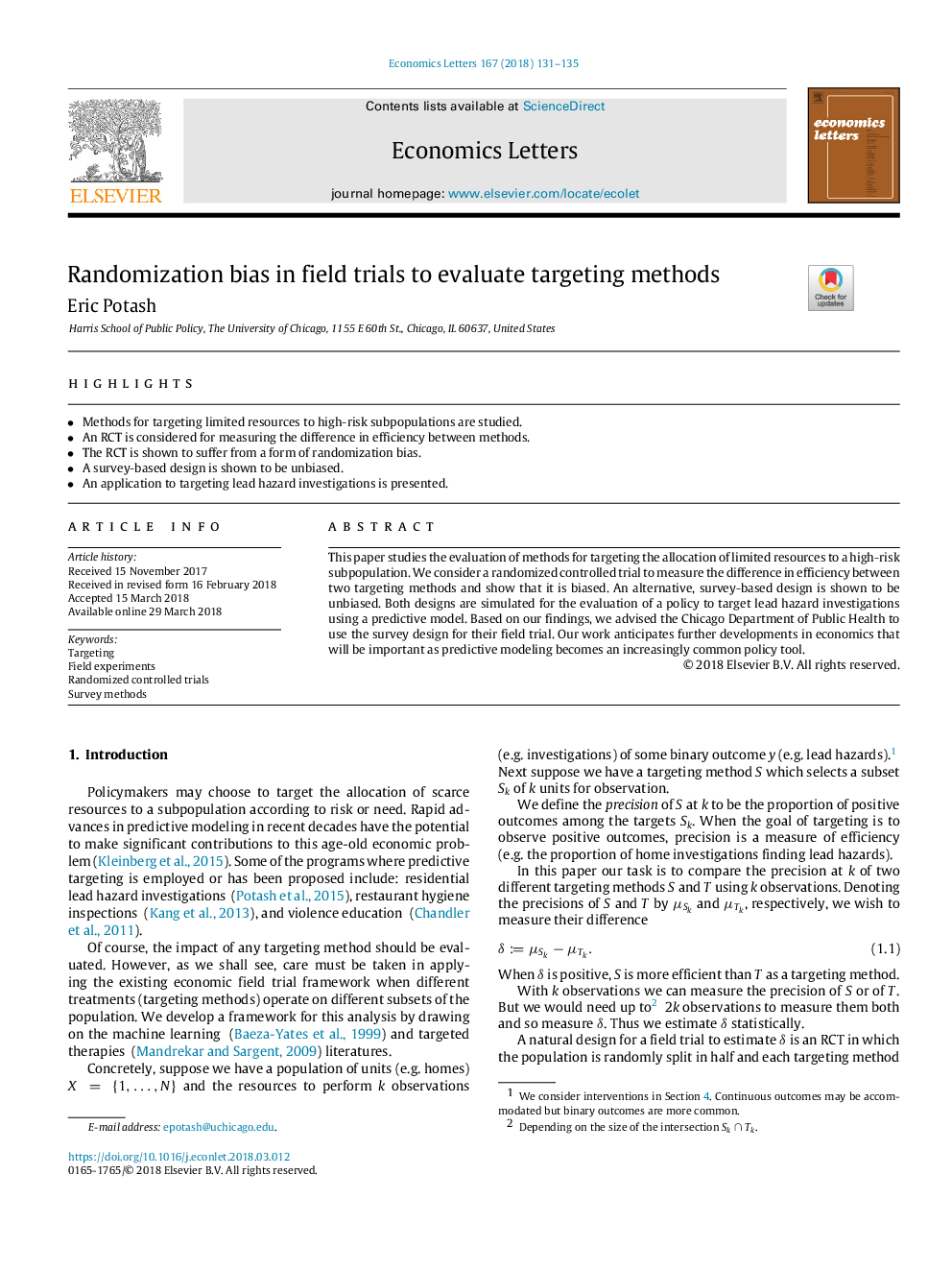| Article ID | Journal | Published Year | Pages | File Type |
|---|---|---|---|---|
| 7349149 | Economics Letters | 2018 | 5 Pages |
Abstract
This paper studies the evaluation of methods for targeting the allocation of limited resources to a high-risk subpopulation. We consider a randomized controlled trial to measure the difference in efficiency between two targeting methods and show that it is biased. An alternative, survey-based design is shown to be unbiased. Both designs are simulated for the evaluation of a policy to target lead hazard investigations using a predictive model. Based on our findings, we advised the Chicago Department of Public Health to use the survey design for their field trial. Our work anticipates further developments in economics that will be important as predictive modeling becomes an increasingly common policy tool.
Related Topics
Social Sciences and Humanities
Economics, Econometrics and Finance
Economics and Econometrics
Authors
Eric Potash,
